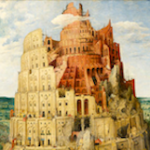 CFP: The Rethinking of Religious Belief in the Making of Modernity
CFP: The Rethinking of Religious Belief in the Making of Modernity
30 May – 1 June 2017, American University in Bulgaria
The relationship between religious belief and modernity has been interpreted in different ways by intellectual historians. Some historiographical currents argue that modern secular societies developed thanks to the gradual emergence of such ideas as “reasonableness”, “natural religion” and “toleration” among certain religious movements of reform and renewal from the Late Middle Ages to the twentieth century. Other sections of historiography maintain that the making of modernity was produced by a process of secularization, which benefited from the spread of intellectual and cultural currents that, in the Age of Enlightenment, held essentially atheistic and materialistic ideas in philosophy and republican, democratic views in politics. Still others have seen modernity as emerging both from and against a religious, and specifically Christian, worldview, given that the rethinking of several religious concepts, texts and institutions since the Renaissance eventually had secularizing consequences.
At present, when controversial political issues are bringing renewed attention to the significance of religion at a global level, a deeper understanding of how the rethinking of religion and religious belief contributed to the making of the modern world may help to elaborate new theoretical frameworks for addressing current issues. Thus, “The Rethinking of Religious Belief in the Making of Modernity” aims to explore the historical, contextual, and methodological issues that intellectual history should take into account when examining the interactions between religious belief and philosophical, political and scientific concepts.
Proposals for 20-minute individual papers are welcome. Proposals for panels, consisting of three 20-minute papers, are also welcome. Paper and panel proposals are welcome both from ISIH members and scholars who are not members of the Society. The language of the conference is English: all speakers are supposed to deliver their papers in English. Papers and panels may concentrate on any period, region, tradition or discipline relevant to the conference theme.
For more information, please see the conference webpage.